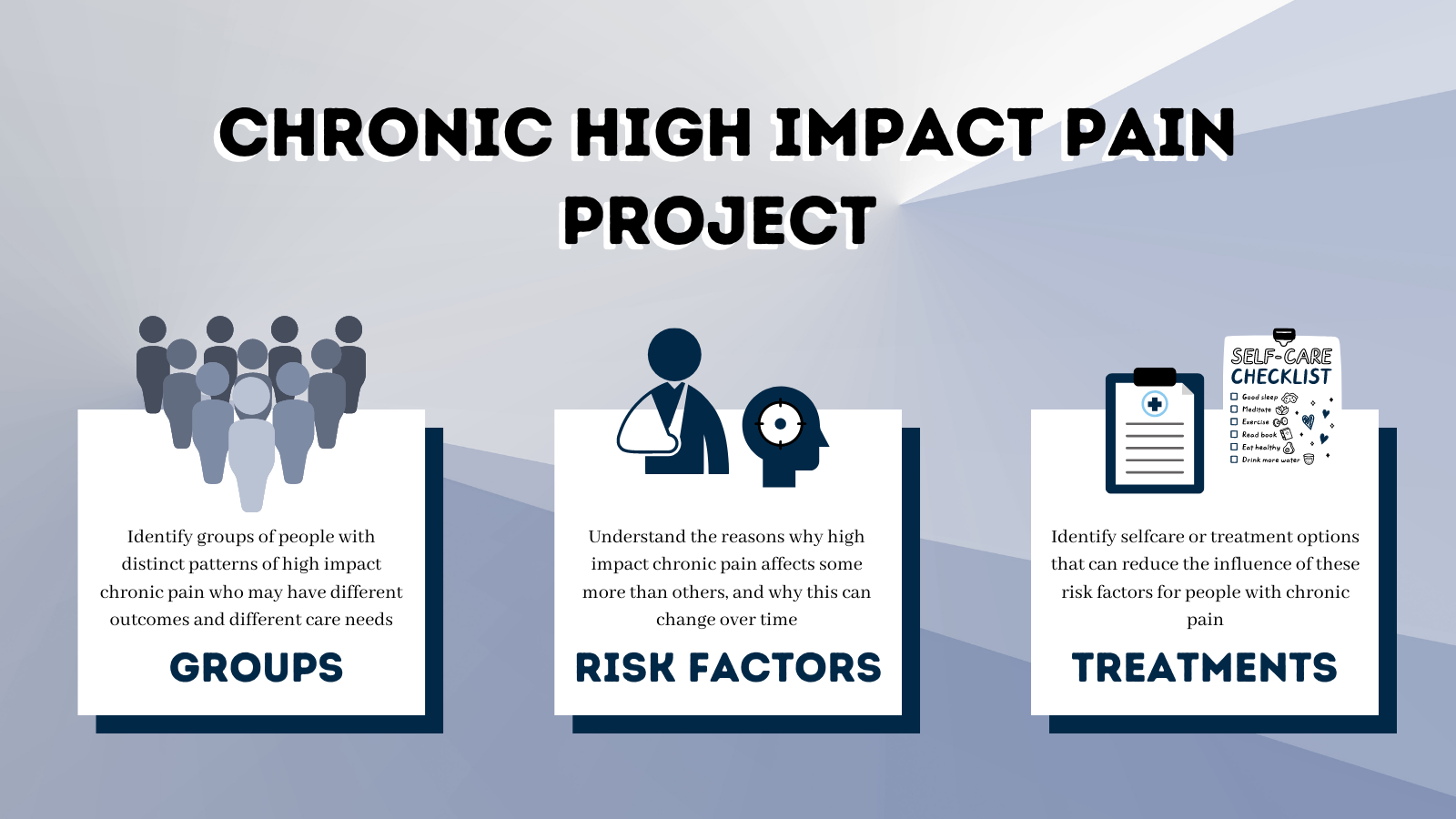
CHIPP Study: High Impact Chronic Pain and UK Biobank
What are the causes and risk factors associated with high impact chronic pain?
In Chronic High Impact Pain Project (CHIPP), we aim to find out the possible causes (or ‘risk factors’) of high impact chronic pain. This will inform the design or choice between selfcare or treatment options that may more effectively address people’s individual needs. Early care or support that target specific risk factors may also help prevent the onset of high impact chronic pain.

Specifically, we plan to use existing data from a large, national study of older adults to:
- Identify groups of people with distinct patterns of high impact chronic pain who may have different outcomes and different care needs
- Understand the reasons why high impact chronic pain affects some more than others, and why this can change over time, focusing on the influence of:
a. psychological factors, including mood, attention, memory, ability to problem-solve
b. trauma or traumatic events that may occur at different times in people’s lives (e.g., fracture, bereavement, sudden illness)
- Identify selfcare or treatment options that can reduce the influence of these risk factors for people with chronic pain.
We will use data from the UK Biobank, which includes health information from 500,000 people in the UK, who were aged 40-69 years when data collection started in 2006-2010. A questionnaire on the nature and impact of chronic pain was completed by over 173,000 participants in 2019. A second pain questionnaire has been sent to participants in 2023.
The research questions for the CHIPP study have been informed by patient partners, who shared their life stories, and suggested factors that may explain the development of chronic pain, and how impact can change over time. They will continue to be involved in defining and prioritising factors for analysis; reviewing interventions; interpreting results; formulating key messages and dissemination of findings.
How will our findings benefit patients?
Understanding factors which contribute towards high impact chronic pain will help to inform different methods of pain management such as self-management or treatment options which are best suited for the persons individual needs. Implementing early intervention and support can target specific risk factors which may prevent the onset of high impact chronic pain.
Funding
This project has been funded by the UKRI (MRC, BBSRC, ESRC; with funding from the Strategic Priorities Fund), Versus Arthritis, Medical Research Foundation and Eli Lilly innovative research grant seeking to increase our understanding of the underlying mechanisms of pain. £999k was awarded for the CHIPP study (funding grant MR/W026872/1), one of the twelve awards mapping complexity of pain.
More information about the CHIPP study is available on the UKRI “Mapping complexity of pain with the Advanced Pain Discovery Platform Awards” (PDF) and Versus Arthritis website.






0 Comments